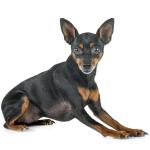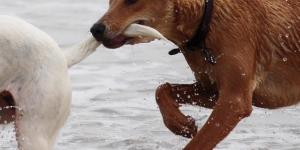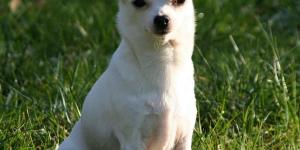Miniature Pinscher

The Miniature Pinscher, also known as Min Pin, is a small breed of dog of the pinscher type from Germany. The Miniature Pinscher has a predominant and strong character. Although they are very affectionate and sociable with their companion and their family, they're not as friendly when encountering a stranger.
In this AnimalWIsed breed sheet we will explain everything you need to know about this breed. So, if you're interesting in adopting a Miniature Pinscher continue reading to learn everything you need to know about this breed.
- Europe
- Germany
- Group II
- 5-14
- 14-18
- 18-22
- 22-27
- 27-31
- More than 31
- 2-7
- 7-22
- 22-55
- 55-100
- 100-220
- 8-10
- 10-12
- 12-14
- 15-20
- Low
- Meidum
- High
Origin
This breed originated in Germany, from crosses between the German Pinscher, the Italian Greyhound and the Dachshund. They are also known as Min Pin or Zwergpinscher. Many people think that this breed is a Miniature Doberman, which is not the case. Although both breeds share some ancestors, the Miniature Pinscher is much older than the Doberman.
Today this Pinscher is one of the most popular and beloved small dog breeds. Although caring for them may take more effort than for other small dogs breeds due to their character.
Physical appearance
This dog is the smaller version of the German Pinscher. They are small with a squared profile as their body length is equal to their height at the withers. Their lines are fine and elegant. The height at the withers is 9,8 -11,8 inches and they weigh from 8,8 - 13,2 lbs.
The Miniature Pinscher's head is elongated with a soft but clearly defined naso-frontal depression. Their nose is usually black but can be brown depending on the color of their coat. Their eyes are dark brown and oval. Their ears erect or bent and have a "V" shaped. In the past, it was customary to cut them to ensure they are erect, but fortunately that practice is disappearing.
Their body is short, small and compact. The breed standard accepted by the International Cynological Federation indicates that the tail must be natural, that is, not amputated. Their hair is short and thick. The accepted colors are brindle, sable, black, brown, red, cream, isabella, fawn and blue.
Character
Miniature Pinschers are full of life, dynamic, curious and fearless. Despite their small size, they are strong-tempered. This is why socializing these dogs from a young age is very important. If they are not properly socialized, they will have behavioral issues as an adult dog.
Then bored, Miniature Pinschers can be destructive. This is why it's important to not leave them alone for long periods of time. When it comes to noise, these dogs are not as noisy as other small dogs.
Care
Caring for these dogs is quite easy and shouldn't take you much time. For their coat, weekly brushing is enough. You only have to bathe them when they get dirty. These dogs are very active so they will need a good dose of daily exercise, but because of their small size they can meet their exercise needs indoors. This doesn't mean that you can substitute outdoor walks for indoor exercise. It only means that they can go a day or two without it but outdoor walks will allow them to socialize, discover new places, sniff, etc.
Miniature Pinschers are perfectly suited to live in small flats or houses. Although they enjoy a garden where they can play, they cannot be kept only outdoors. These types of dogs need to sleep indoors.
Education
When it comes to training these dogs, it's best done through positive reinforcement. The traditional method can cause issues especially due to these dog's temperament. When using positive reinforcement to train them, you're mentally entertaining them while creating a stronger bond with them. Remember to keep training sessions short from 5 - 15 min.
Health
The Miniature Pinscher tends to be a healthy dog and the breed is not particularly prone to any particular dog disease. Occasional progressive retinal atrophy or patellar dislocation may occur, but it's not very common. Obesity can also be a problem, because these dogs are usually very gluttonous.
Vídeo de Miniature Pinscher
Miniature Pinscher photos



















